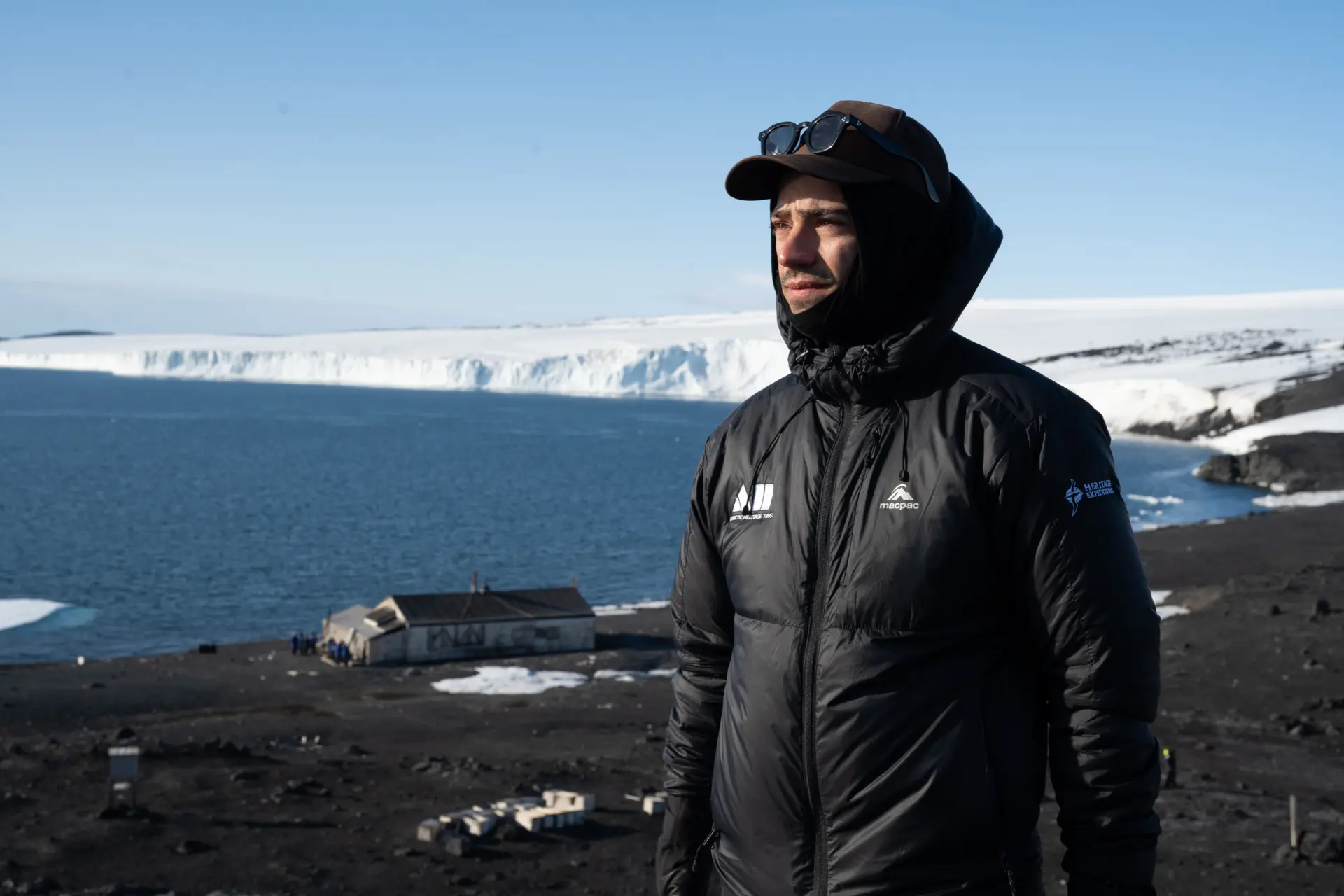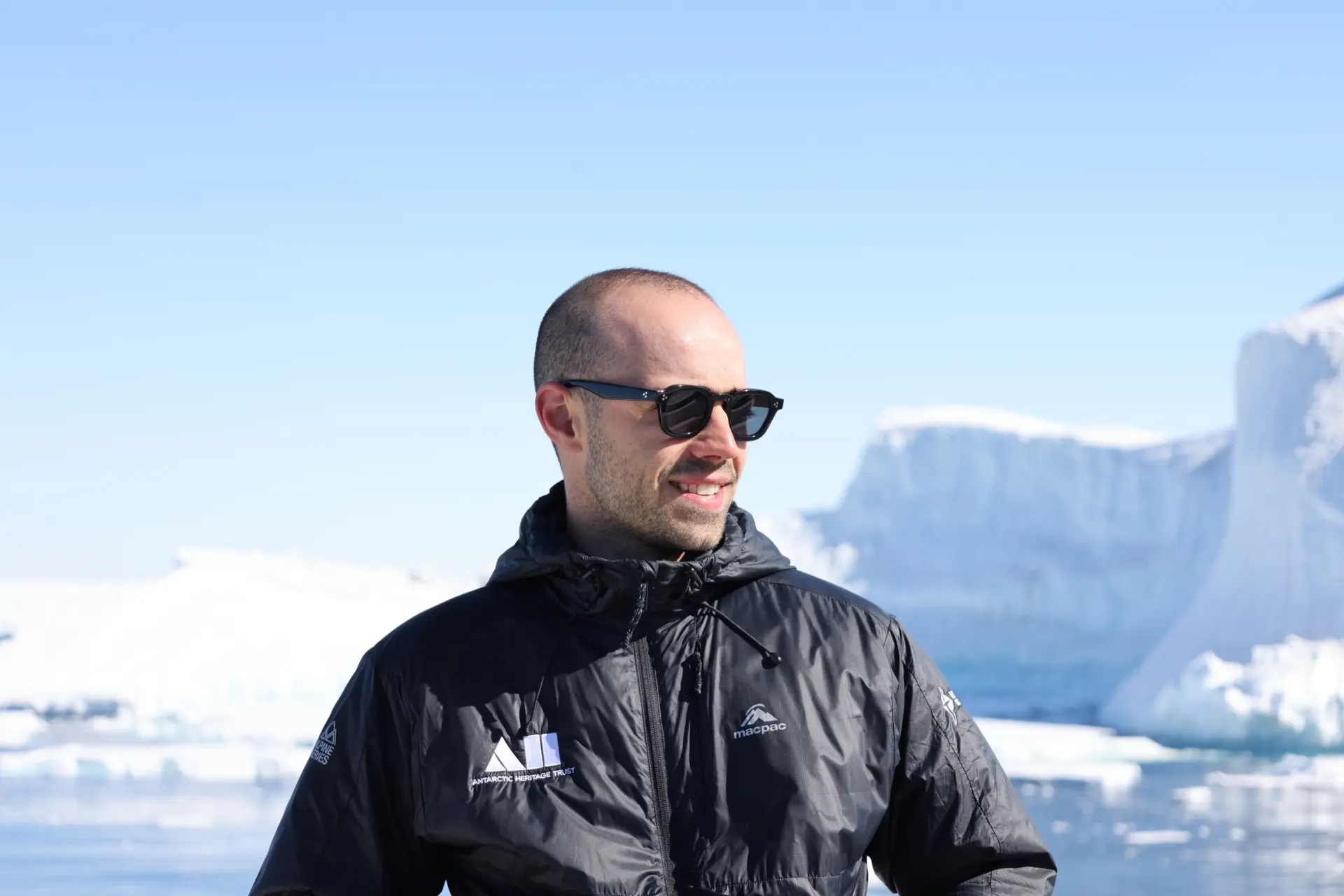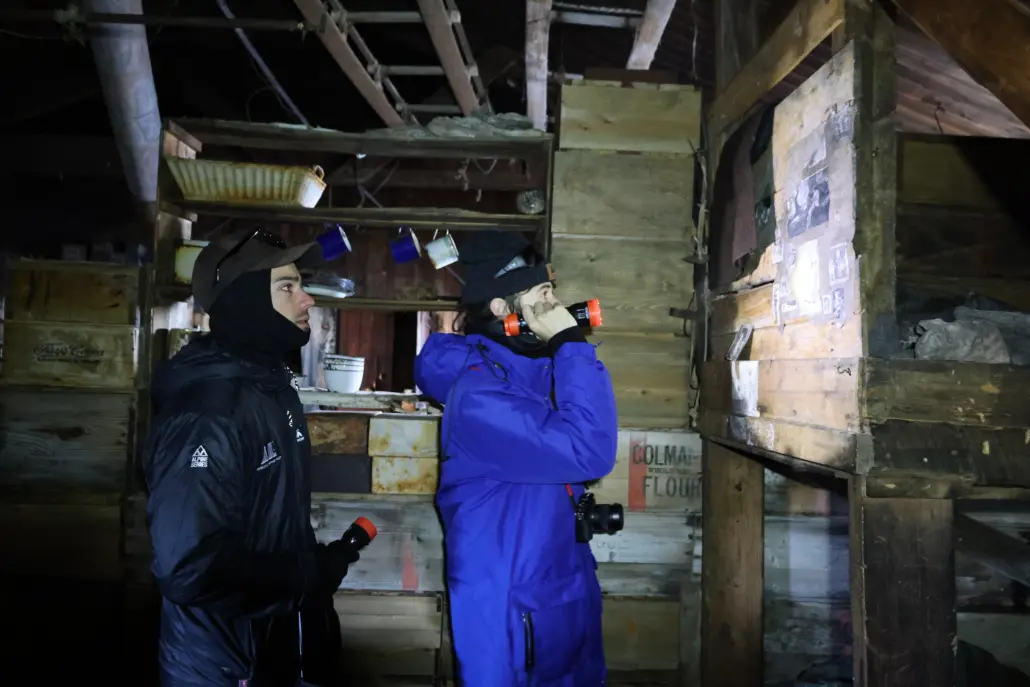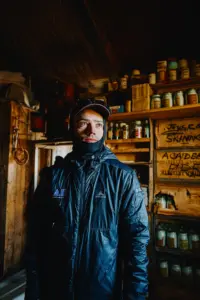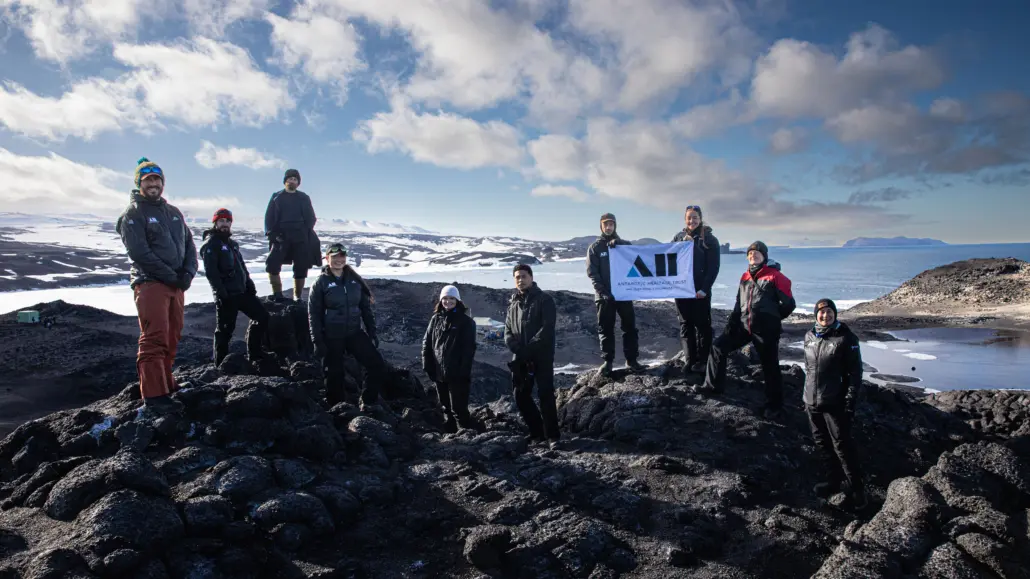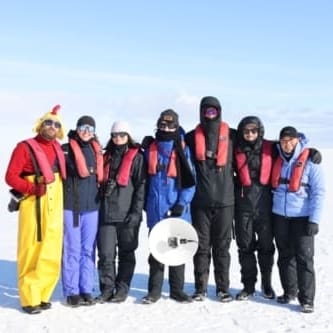Expedition Blog – Jake Bailey, Ross Sea 2025
Upon returning home from Antarctica, the first thing anyone fortunate enough to have had the incredible privilege of going to the end of the earth figures out is that everyone has the same question for you: ‘How was it?’.
The first time you’re asked, you spew forth several paragraphs of intricate details, anecdotes, inside jokes, Antarctic history, a short biography for all of the team you travelled alongside and provide photographic evidence and a detailed timeline to support every statement. The second time, having sensed that your last glazed-eyed victim didn’t quite feel the full impact of the natural beauty, isolation, weight of history, and gratitude for a life-changing experience, you might change tack slightly. By the fiftieth, you now just offer up ‘it was great’, long ago having been resigned to the fact that you’ll never get across in words quite what the experience meant and means to you. It is so foreign, so completely unrelatable to anything I had ever experienced before, that there are not words to be put to the experience – which makes the task of writing a blog like this fairly challenging.
That’s probably a bit of a cop out by me though, because the fact is that others, who walked those same footsteps before us, did do a fairly admirable job of capturing the experience in the limited words we have available to us.
When I read back over the diaries of Frank Wild, arguably the most experienced explorer of the heroic age, he definitely has lines which make me feel something [from his account of the Australasian Antarctic Expedition led by Mawson] – although it is typically abject horror as he and the men around him eat their sledge dog to survive a little longer (“the brain was certainly the most appreciated and nutritious section, I remember well Mertz remarking specially upon it,”), or smoke the hairs from their reindeer skin sleeping bags as they’ve run out of tobacco (“the non-smokers complained bitterly against the noxious fumes”), or watch another man bite a piece of his finger off in the process of trying to prove he doesn’t have frostbite (“Mertz developed dysentery and for the first time his fingers were badly frost bitten. He had always been so resistant to cold he could not believe it, until he bit a considerable piece off one of them”).
Side note: if there was ever a slippery-slope argument to be made, it would have to be Mertz starting with his dog and ended with his digit – some things just aren’t made to be eaten.
I don’t have the same stories to share of my own adventure, as thanks to a combination of the exceptional culinary skills of the Heritage Expeditions’ crew, SmokeFree Rock Quest, and Antarctic Heritage Trust’s comprehensive health and safety planning, we made it through without encountering any of the prior three challenges on the Ice. So, you’ll have to bear with me if my own account doesn’t have the same flair as Wild’s.
What stands out most from the stories of the Heroic Age explorers, for anyone who has engaged with them, is the resilience of those men. To go to the ends of the earth, to leave behind all they had ever known in search of a complete unknown, to willingly embrace loss, and sacrifice, and suffering, and death.
To do it all for an unknown gain, up against a very tangible loss. The stories of this era are truly some of the most inspiring exhibitions of endurance and fortitude that humankind has ever been able to muster.
So, what was it that enabled this? What got them through? What was their secret to survival and persistence?
Well, in my search so far, Wild’s diaries don’t seem to give any hint of some particularly revolutionary top-secret strategy which gave them their superhuman courage and resolve. There’s no core tenet or philosophy to be packaged up by some self-appointed new-age wellness expert and sold to corporate leadership teams in a series of eye-wateringly expensive seminars and team-building workshops (despite my great hopes). Ice baths are not mentioned (in spite of their convenience), there’s no group breathwork, although admittedly the keto carnivore diet does come up (when they run out of supplies and start exclusively eating the local wildlife to survive). You couldn’t get a podcast episode out of their ‘revolutionary new bio-hacking wellbeing enhancement trick’.
The only thing that does stand out, the one common and repeating refrain, across all manner of suffering and triumphs, expedition after expedition, through survival and loss, was simply that they had each other. Every story of horror is told through the reflection of how their comrades stepped up in response: a man falls down a crevasse and is hauled out by his peers.
One’s feet begins to peel and slough away from frostbite, and are dressed and bandaged by another chap, who also lightens the victim’s sled load for the next day. They are pinned down by a blizzard short of their next supply cache, and make it through by sharing their limited rations amongst one another. The horror, the shock as a reader in 2025 is tempered by their support and care for each other.
Yes, they ate the dog. But the preceding line to the last quote details how they “(passed) the skull from one to the other, and took turns in eating our respective shares”. Yes, they smoked the sleeping bags when they ran out of tobacco. But when one man remembered he had months prior abandoned a coat with tobacco in its pocket, “he had to tunnel 30 feet (through the snow drift) before he got to the rock face, and then twelve feet to one side where he was lucky enough to find the coat. Although I expostulated with Bakewell and pointed out that no one had helped him with his digging, he insisted on sharing it all around”.
Yes, Mertz lost a digit, and then his life a few days after – but when he did, “Mawson piled a mound of snow over the body of Mertz and erected a rough cross”. They endured through it all, and their resilience was, in large part, because they had each other by their side. That human connection is the closest thing there is to a secret to their survival.
Maybe then, that’s the closest parallel I can find between those incredible tales of human endurance, and my own and our team’s stories of modern comfort and luxury. Not the challenges, but the connections that we forged, the support we gave one another, the moments of both levity and intensity which we shared, were so much of what defined my Antarctic experience with Antarctic Heritage Trust in my eyes. Not just amongst our amazing team of ten, but likewise with the crew, and other passengers.
Whether it was the humour which scooped one another up in the lowest moments, the giddy excitement shared as we first sighted land, the shared moments of awe as the ship pushed aside chunks of ice to make a path, the wordless grins with eyes locked as you step foot on the edge of the globe for the first time, the arm around a shoulder in a moment of silent support. These experiences must have surely been just as real, as powerful, and as frequent for Wild as they were for us on our journey. Despite experiences at the opposite ends of the comfort spectrum, over 100 years apart, that has remained constant: the value and impact of human connection and support.
I wonder if the other constant which remains all this time later, the link which connects us to those great explorers who went before us, is that they too must’ve been asked, “How was it?” when they got back. I’m not sure how they would’ve honestly answered. But now, for me, when people ask me now “How was it?”, my answer is this: “It was great. We had an incredible team”. And I wouldn’t be surprised were their answers the same.
Jake Bailey
Inspiring Explorer

